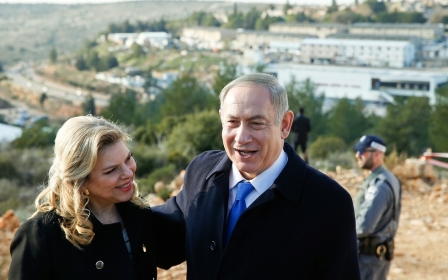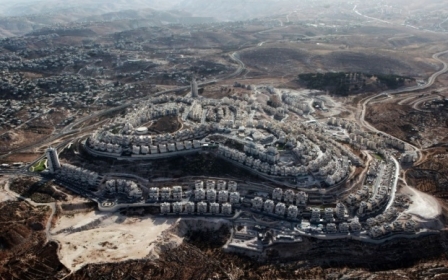Israeli rights groups challenge settlement land-grab law
Israeli human rights groups are to petition the Supreme Court on Wednesday asking it to strike down a new law allowing expropriation of private Palestinian land for Jewish settlers.
Adalah said that it and the Jerusalem Legal Aid and Human Rights Centre would file the request on Wednesday afternoon to overturn the "dangerous" law, which was approved by the Israeli parliament late on Monday.
"This sweeping and dangerous law permits the expropriation of vast tracts of private Palestinian land," Adalah's lawyer Suhad Bishara said.
"It violates the property rights both of resident and refugee Palestinians."
The law legalises dozens of wildcat outposts and thousands of settler homes in the occupied West Bank, and prompted a Palestinian call for the international community to punish Israel.
The UN, the European Union and the Arab League strongly criticised the legislation on Tuesday, although Israeli ally the United States remained silent.
Israel's attorney general has said the law is unconstitutional and could open the country up to prosecution at the International Criminal Court, based in The Hague.
"The transfer of the occupying power's civilian population into occupied territory is a war crime," Bishara added.
Palestinian politicians yesterday said the law was an "assassination" of hopes of a two-state solution and peace between Israelis and Palestinians.
Mustafa Barghouti , the leader of the Palestinian National Initiative movement, told Middle East Eye that the legislation signalled a turning point in Palestinian-Israeli relations.
“This law is an assassination of the two-state solution,” Barghouti said. “It is an act that aims at annexing most of the land in the West Bank.”
“I am sure the next step for Israel will be to annex the Maale Adumim settlement,” Barghouti said, referring to an illegal Israeli settlement located in the E1 zone of the occupied West Bank.
“In other words, Israel is legalising settlements, with the intention of annexing them into Israel, that will be the cycle now.”
Middle East Eye propose une couverture et une analyse indépendantes et incomparables du Moyen-Orient, de l’Afrique du Nord et d’autres régions du monde. Pour en savoir plus sur la reprise de ce contenu et les frais qui s’appliquent, veuillez remplir ce formulaire [en anglais]. Pour en savoir plus sur MEE, cliquez ici [en anglais].




